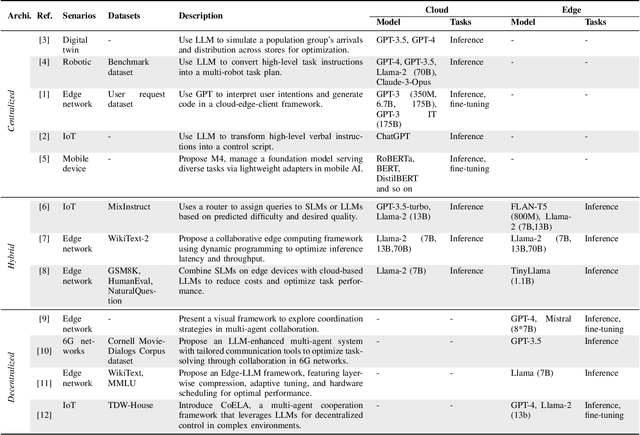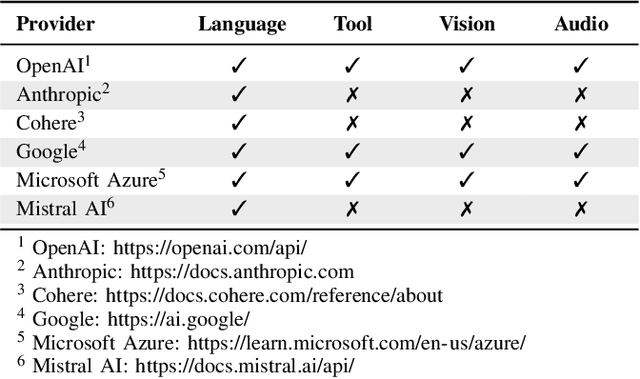Towards Edge General Intelligence via Large Language Models: Opportunities and Challenges
Paper and Code
Oct 16, 2024



Edge Intelligence (EI) has been instrumental in delivering real-time, localized services by leveraging the computational capabilities of edge networks. The integration of Large Language Models (LLMs) empowers EI to evolve into the next stage: Edge General Intelligence (EGI), enabling more adaptive and versatile applications that require advanced understanding and reasoning capabilities. However, systematic exploration in this area remains insufficient. This survey delineates the distinctions between EGI and traditional EI, categorizing LLM-empowered EGI into three conceptual systems: centralized, hybrid, and decentralized. For each system, we detail the framework designs and review existing implementations. Furthermore, we evaluate the performance and throughput of various Small Language Models (SLMs) that are more suitable for development on edge devices. This survey provides researchers with a comprehensive vision of EGI, offering insights into its vast potential and establishing a foundation for future advancements in this rapidly evolving field.
 Add to Chrome
Add to Chrome Add to Firefox
Add to Firefox Add to Edge
Add to Edge